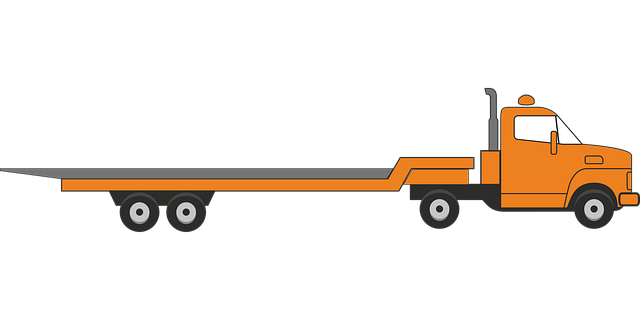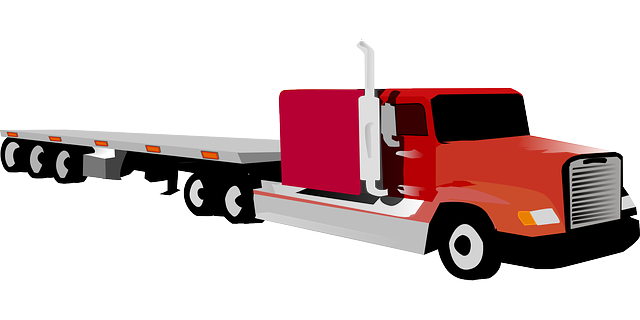Commercial truck insurance (also known as business truck insurance) is crucial for businesses to mitigate risks and comply with legal requirements. A robust policy should include liability, collision, comprehensive, cargo protection, medical payments, and roadside assistance. Customized plans address specific needs like hazardous material hauling, fleet size, cargo type, driving distances, and regulatory compliance, providing comprehensive commercial vehicle protection against accidents, natural disasters, and theft.
In the dynamic world of commercial trucking, navigating legal requirements and securing financial protection is paramount for businesses to thrive. This article guides you through the intricacies of commercial truck insurance, offering insights into essential components that form a robust business truck insurance policy. From understanding comprehensive truck insurance needs to customizing plans for optimal commercial vehicle protection, these strategies ensure your fleet, drivers, and business are shielded against potential risks and liabilities associated with trucking operations.
- Understanding Commercial Truck Insurance Requirements
- Key Components of a Comprehensive Truck Insurance Policy
- Navigating Liability and Specific Coverage Needs for Trucking Businesses
- Customizing Insurance Plans to Ensure Optimal Protection for Your Fleet
Understanding Commercial Truck Insurance Requirements

Navigating the complex landscape of insurance for your business trucks is a crucial step in ensuring legal compliance and financial protection. Commercial truck insurance, also known as business truck insurance or commercial vehicle coverage, plays a pivotal role in safeguarding against potential risks and liabilities unique to the trucking industry. A comprehensive truck insurance policy typically encompasses several key components, including liability coverage to protect against accidents and damages, collision insurance for truck-related incidents, and comprehensive truck insurance to cover losses from theft, natural disasters, or other unforeseen events.
When crafting custom truck insurance plans, it’s essential to consider the specific needs of your operation. This may include specialized coverage for hauling hazardous materials, protection against cargo damage or loss, and even roadside assistance services. Understanding these requirements allows businesses to tailor their insurance policies, ensuring they have the right level of commercial trucking insurance in place to mitigate risks and provide the necessary financial protection.
Key Components of a Comprehensive Truck Insurance Policy

When it comes to protecting your business and assets in the world of commercial trucking, a robust commercial truck insurance policy is non-negotiable. Comprehensive truck insurance policy coverage ensures that your operation remains resilient against potential risks and financial losses. At its core, a quality business truck insurance plan should encompass several key components.
These include commercial vehicle coverage for liability, which shields you from damages caused to others during an accident, as well as collision and comprehensive protection to safeguard against physical damage to your truck. Additionally, many custom truck insurance plans include provisions for cargo protection, ensuring the safety of your goods in transit. Furthermore, policies may offer medical payments coverage for injured parties, as well as roadside assistance services, providing peace of mind on the road.
Navigating Liability and Specific Coverage Needs for Trucking Businesses

Navigating Liability and Specific Coverage Needs for Trucking Businesses is a complex task that requires comprehensive understanding of both legal and financial aspects. Commercial truck insurance, also known as business truck insurance or commercial vehicle coverage, plays a crucial role in protecting trucking operations from potential risks. Every truck and its operations have unique needs, which necessitate tailored truck insurance policies. From general liability to specific coverage for cargo damage, drivers’ personal injury, and even mechanical breakdowns, a robust truck insurance policy is essential.
Comprehensive truck insurance plans go beyond basic liability by offering protection against various scenarios, including on-the-job accidents, natural disasters, and theft. Custom truck insurance plans are designed to cater to the specific requirements of trucking businesses, ensuring they are adequately covered for their unique operations. This includes considerations like fleet size, type of cargo transported, driving distances, and compliance with local and federal regulations, all of which influence the level and types of coverage needed under a truck insurance policy.
Customizing Insurance Plans to Ensure Optimal Protection for Your Fleet

When it comes to protecting your trucking business, a one-size-fits-all approach won’t cut it. That’s where customized insurance plans for commercial trucks and businesses come into play. These tailored policies go beyond basic commercial vehicle coverage by addressing the unique risks associated with the trucking industry. By evaluating your specific fleet needs—including the types of vehicles, driving distances, and cargo carried—insurance providers can craft a truck insurance policy that offers comprehensive protection.
Consider including comprehensive truck insurance to shield against unexpected events like accidents or natural disasters. Additionally, truck liability insurance is paramount to safeguard your business from financial loss resulting from incidents involving third parties, such as passengers or other vehicles. A well-crafted business truck insurance policy will not only provide peace of mind but also ensure your trucking operation remains resilient and compliant with legal requirements.
In navigating the complex landscape of commercial trucking, ensuring legal compliance and robust financial protection is paramount. By understanding the key components of a comprehensive truck insurance policy, businesses can mitigate risks associated with liability, cargo damage, and operational losses. Customizing insurance plans to fit specific fleet needs allows operators to access tailored coverage, providing peace of mind and safeguarding their investments in these vital commercial vehicles. With the right strategies in place, trucking operations can thrive, focusing on efficient transportation while relying on robust protection measures.
